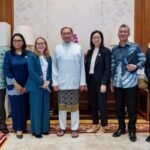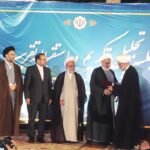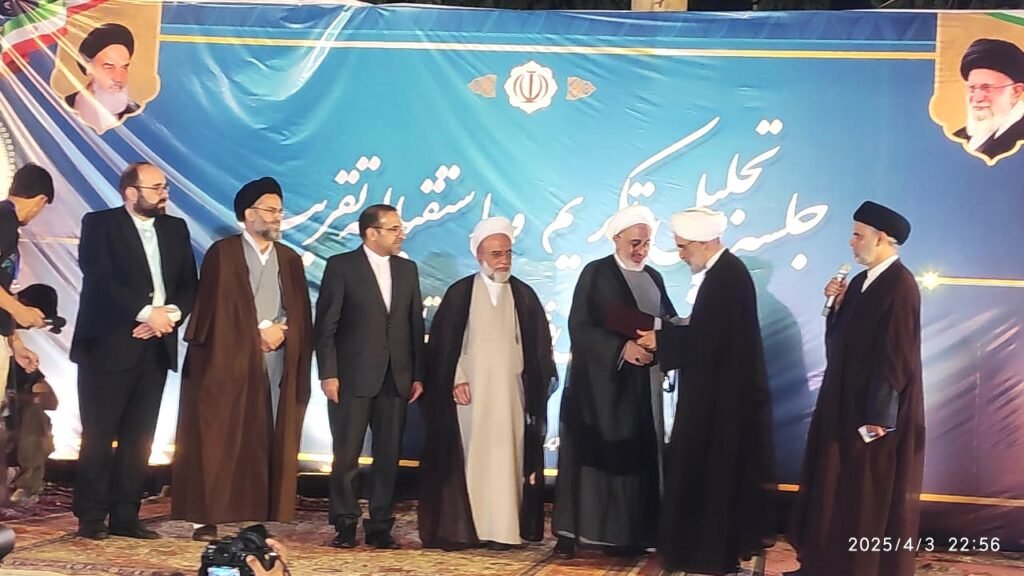
BY MOHAMMAD TARIQUE SALEEM
In a momentous ceremony held at the Iran Culture House, Ayatollah Agha Muhsin Qummi, the esteemed Head of International Relations of the Supreme Leader’s Office, delivered a powerful and heartfelt speech marking a new chapter in the religious and diplomatic landscape between Iran and India. The gathering was organized to formally announce the appointment of Hojjat Al Islam Wal Muslimeen Haj Agha Abdul Majeed Hakeem Elahi as the new Representative of the Supreme Leader of the Islamic Republic of Iran in India. The event also served as a tribute to the commendable fifteen years of service by the outgoing representative, Hojjat Al Islam Wal Muslimeen Haj Agha Mahdi Mahdavipour.

In his address, Ayatollah Qummi reflected on the historical and cultural bonds shared by Iran and India. He described the relationship as “a deep-rooted spiritual and civilizational bridge that has withstood the test of time,” emphasizing the significant role played by religious scholars and leaders in nurturing this enduring connection. He opened his remarks by invoking peace and blessings upon the Prophet Muhammad (PBUH) and the Ahlul Bayt, grounding his message in the shared Islamic heritage that unites the people of Iran and India.
With great warmth and solemnity, Ayatollah Qummi announced the appointment of Hojjat Al Islam Wal Muslimeen Haj Agha Abdul Majeed Hakeem Elahi. He praised Elahi’s scholarly depth, humility, and experience in Islamic outreach. “He is a man of knowledge, wisdom, and sincerity. His selection by the Supreme Leader, Ayatollah Sayyid Ali Khamenei (may Allah protect him), is a clear reflection of the Leader’s deep concern for the continuation of intellectual and spiritual guidance for the Shia community in India.”
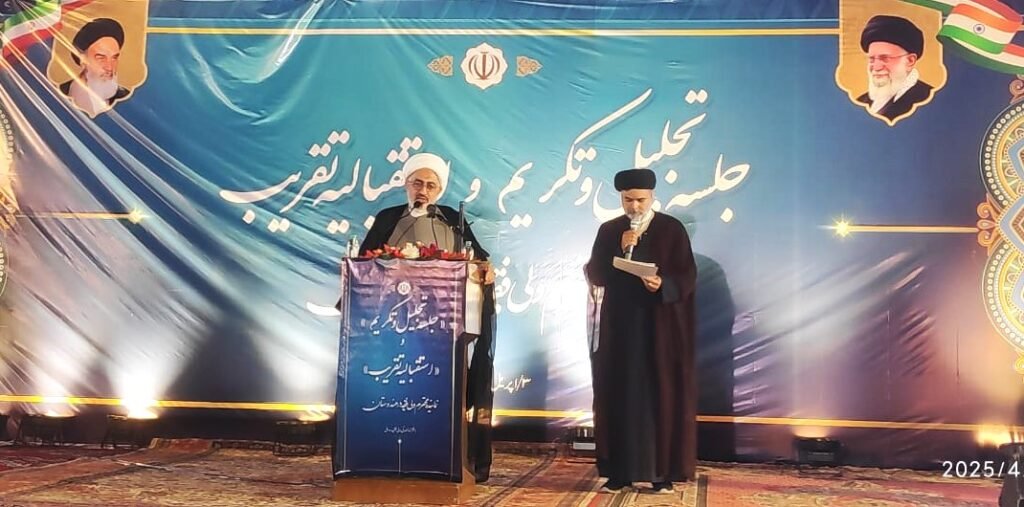
Ayatollah Qummi expressed confidence that Hakeem Elahi would carry forward the mission of promoting unity among Muslims, encouraging peaceful coexistence, and enhancing cultural diplomacy. “India is a land of diversity, faith, and coexistence. The Representative of the Supreme Leader must always work to nurture harmony, spread the teachings of the Ahlul Bayt (AS), and serve as a guide for the community. I am certain that Hakeem Elahi will rise to this noble responsibility,” he stated.
One of the most emotionally charged segments of Ayatollah Qummi’s speech was his tribute to the outgoing representative, Hojjat Al Islam Wal Muslimeen Haj Agha Mahdi Mahdavipour. He lauded Mahdavipour’s dedication, patience, and perseverance throughout his 15-year tenure in India, calling it a “golden era of scholarly and cultural engagement.”
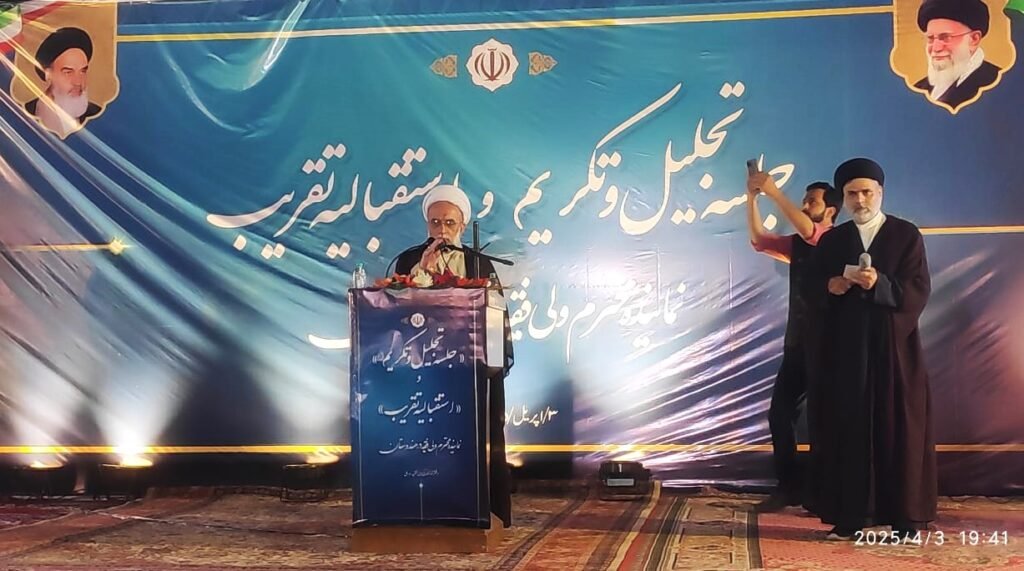
“From his arrival in India, Haj Agha Mahdavipour worked day and night to uplift the Shia community, establish educational institutions, promote Islamic teachings, and build bridges with all religious communities. His mission was not only to represent the Supreme Leader but to be a brother, teacher, and spiritual father to thousands,” Ayatollah Qummi remarked.
He recounted Mahdavipour’s initiatives, including the expansion of Hawzas (Islamic seminaries), youth engagement programs, interfaith dialogues, and humanitarian services across Indian cities such as Lucknow, Hyderabad, Mumbai, and Delhi. “His work was never limited to rituals it was about awakening hearts and minds. He understood the needs of the people and responded with compassion and wisdom,” said Qummi.
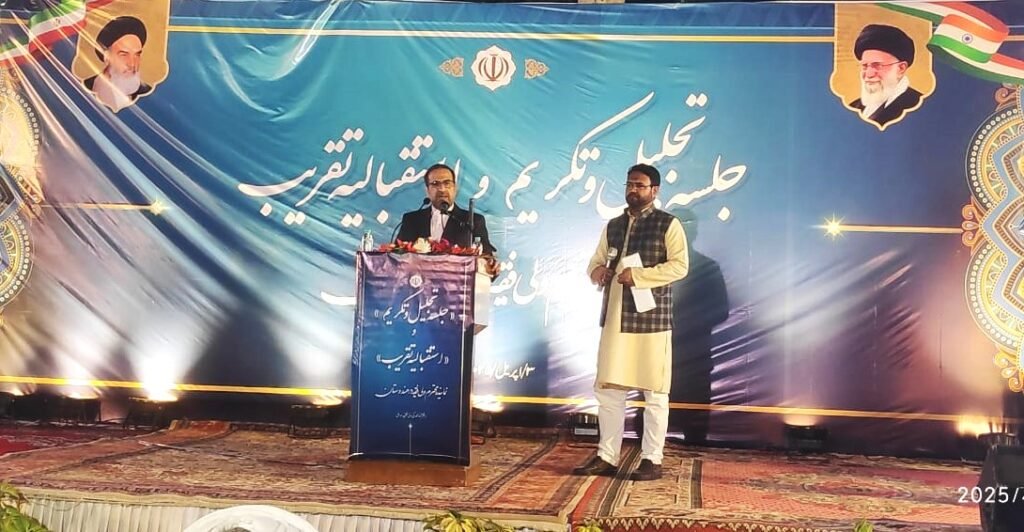
The speech highlighted how Mahdavipour’s approach emphasized the message of peace, love, and unity, particularly in a multi-religious and multi-ethnic nation like India. Qummi also noted that Mahdavipour had developed strong ties with academic circles and religious organizations, deepening the intellectual discourse between Iranian and Indian scholars.
Ayatollah Qummi used the occasion to urge both representatives, outgoing and incoming, as well as all community members to continue their commitment to Islamic values and mutual respect. “Our responsibility is not limited to buildings or banners it is to hearts, to education, to building character, and to planting seeds of faith in future generations,” he emphasized.
He reminded the audience that while representatives may change, the mission remains the same: to reflect the wisdom and guidance of the Supreme Leader and to serve the people with humility and dedication. He also called upon Indian scholars, students, and community leaders to extend their full support to the new representative, ensuring a smooth and fruitful transition.
The gathering ended with heartfelt prayers for both Haj Agha Abdul Majeed Hakeem Elahi and Haj Agha Mahdi Mahdavipour. The audience, which included diplomats, scholars, students, and members of the Indian Shia community, expressed appreciation for the Supreme Leader’s ongoing concern for the spiritual well-being of Indian Muslims.
Ayatollah Agha Muhsin Qummi’s speech was not merely a formality; it was a profound reminder of the sacred responsibility held by religious leaders. It captured the essence of Islamic diplomacy one rooted in sincerity, scholarship, and service. As India welcomes the new representative, the legacy of Haj Agha Mahdavipour and the hopes placed on Hakeem Elahi promise to further strengthen the Indo-Iranian cultural and religious relationship in the years to come.
Iran’s Ambassador to India, Dr. Iraj Elahi, officially welcomed Hojjat al-Islam wal-Muslimeen Haj Agha Abdul Majeed Hakeem Elahi as the new Representative of the Supreme Leader of Iran in India. In his speech, Dr. Elahi highlighted the importance of strengthening Iran-India cultural and religious ties through this new appointment. He praised Hakeem Elahi’s scholarly background and expressed confidence in his role to continue fostering unity among the Shia community and strengthening relations with Indian Muslims and scholars. The ceremony marked a new chapter in Iran-India religious diplomacy.


